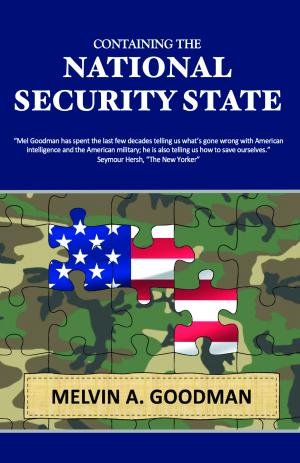New York Times’ Hall of Shame: Ross Douthat Rivals Duranty & Miller
Several presidential administrations used the mainstream media to make the case for war to a naive American public. The classic examples were the Spanish-American War in the 1890s; the Vietnam War in the 1960s; and the Iraq War in 2003. In each case, the national security teams of Presidents McKinley, Johnson, and Bush respectively politicized available intelligence, using phony intelligence to persuade the media of the case for war. The poster child for such corruption was the late Secretary of State Colin Powell, who embarrassed himself and his nation with his presentation to the United Nations in which he argued for the invasion of Iraq. The mainstream media have been too willing to serve as loyal surrogates in these exercises.
Conversely, there are examples of prominent journalists who have served the interests of foreign aggressors by downplaying their evil actions. Ukraine has been at the center of this perfidy with the New York Times downplaying Stalin’s “Holodomor” in the early thirties and now Times’ columnist Ross Douthat dismissing obvious acts of genocide in Ukraine today. Douthat compounds the error that so many politicians and pundits make in defining genocide by the number of slaughtered civilians. The key to defining genocide is intent, and there is no question that Russia’s Vladimir Putin—like Stalin before him—is trying to decimate Ukrainians, denying Ukrainian nationality and identity.
In response to the question “Is Putin committing genocide,” Douthat concluded “Not yet, folks….” In doing so, Douthat ignores mounting evidence of Putin’s fratricidal warfare to destroy or at least traumatize a country and its people. The Russian army is making no effort to hide crimes that include summary executions and booby traps that will target children in their playgrounds. Putin displayed his intent to do so months before the war, when he signed an essay (“On the Historical Unity of Russians and Ukrainians”) that denied the existence of Ukraine and Ukrainians. The essay is required reading in the Russian armed forces. Several days before the invasion, Putin declared that Ukraine is an “inalienable part of our own history, culture, and spiritual space.”
Douthat argued that President Joe Biden’s charge of Russian genocide in Ukraine was a case of “leaping ahead of our major allies, our State Department and the available facts.” Douthat argues that Biden’s declaration of genocide will not “change our obligations in the war,” but it has already led to significant changes in the level and lethality of U.S. and German weaponry being provided to Ukraine. British Prime Minister Neville Chamberlain, who made the word “appeasement” a craven act of surrender, would have identified with Douthat’s assessment that accusations of genocide “should be made, well, practically never” in dealing with a nuclear power.
Judith Miller and Walter Duranty occupy more prominent places in the Times’ Hall of Shame. Miller was forced to resign from the paper in 2005 because of her dishonest reporting regarding Iraqi weapons of mass destruction in the run-up to the U.S. invasion. Miller’s articles over the years revealed a strong anti-Islamic bias, and her repeated references to Saddam Hussein’s “dogged insistence on pursuing his nuclear ambitions” were often cited by Secretary of Defense Donald Rumsfeld, Secretary of State Colin Powell, and national security adviser Condi Rice in their phony case for war.
It was Seymour Hersh who reported that Miller’s only source for much of her reporting was Iraqi opposition leader Ahmed Chalabi who was fed disinformation about Iraq from high-level Pentagon officials, including Deputy Secretary of Defense Paul Wolfowitz and Undersecretary of Defense Douglas Feith. Miller’s editor at the Times, Andrew Rosenthal, lambasted Hersh for his articles outing Miller in The New Yorker, indicating complicity on his part. Chalabi also had help from prominent journalists, including William Safire of the Times and James Hoagland of the Post. Key Republicans on the Hill, particularly Senators Jesse Helms and Trent Lott, were enthusiastic supporters of Chalabi’s disinformation.
On the basis of my own efforts in 2002-2003 to inform members of the press about the phony case against Iraq, I concluded that the New York Times and the Washington Post simply wanted their journalists to confirm the existence of Iraqi WMD, and were uninterested in introducing an element of skepticism to the issue. (Rosenthal, by the way, is the son of A.M. Rosenthal, longtime senior executive and executive editor of the Times. He went on to become the editor of the editorial page.) The mainstream media in England were similarly helpful to Prime Minister Tony Blair, as documented in the British film “Official Secrets.”
In the 1930s, Walter Duranty of the Times won a Pulitzer Prize for his coverage of the famine in Ukraine that led to the loss of several million Ukrainians. Duranty dismissed the so-called famine as a “sheer absurdity,” and repeated the Soviet line that there were “serious food shortages” in Ukraine but no “deaths from starvation.” The Ukrainians knew better, labeling the famine the “Holodomor.” Duranty made several visits to Ukraine in 1933, and wrote that the people “looked healthier and more cheerful than [he] had expected. Duranty, like Stalin, concluded that the “solution to the agrarian problem had been found.”
Duranty was not alone in buying into Stalin’s lies about the famine. According to various sources, every reporter and paper covering the Soviet Union in the early 1930s served as Stalin’s “useful idiots” in parroting the Soviet case.
Lies from the government supported wars against Mexico and Spain in the 19th century, and against Vietnam and Iraq in the 20th century; in each case, the media initially bought into the government’s politicization of information and intelligence. “Remember the Maine” led to the Spanish-American war, but a coal bunker fire, not a Spanish mine, was the cause of the sinking of the USS Maine. The Tonkin Gulf resolution that gave the Johnson administration carte blanche in Vietnam was based on disinformation about so-called unprovoked attacks on the USS Maddox and other U.S. navy ships. President Lyndon Johnson loved the resolution, saying that, “like Gandma’s nightshirt, it covered everything.” The U.S. press corps in Vietnam in the first years of the war largely supported the misinformation of the U.S. military,
My own experience in dealing with the mainstream media as an intelligence officer with the CIA is revelatory. During my testimony in 1991 against the confirmation of Robert Gates as director of the Central Intelligence Agency, I was subjected to attacks in the press based on scurrilous material being distributed by the White House. I decided to provide my side of the story to Elaine Sciolino of the New York Times and Benjamin Weiser of the Washington Post. Sciolino was initially receptive of my accounts, but eventually her writings tilted heavily in the direction of confirming Gates. In a subsequent conversation, she admitted that she moved from an even-handed position to one in favor of Gates to protect her access to the future CIA director. Her explanation says a great deal about the weakness of the mainstream media: “When I realized that Gates would be confirmed, I knew that Gates would be a key source for many important stories, but that you would return to the faculty of the National War College and would probably never be a source for a future story.”
The mainstream media has done a commendable job of critiquing the role of state-sponsored narratives in the foreign press, but it has been too willing at crucial junctures to be part of a decision-making process that is built on a farrago of politicization, illusion, and spin.
Recent News and Latest Book
Iran and the US Say Enough, Will Israel Go Along?
The emphasis now should be on a cease fire in Gaza; release of the hostages; a surge of humanitarian assistance to Gaza; and talks with Iran that could lead to diplomatic recognition.
Meet the Newest Apologist for Israel: Rear Admiral John Kirby
Tuesday’s press conference highlighted the worst of the administration’s predictable defenses and apologies for Israel’s illegal and immoral military campaign against Palestinian civilians. Once again, the worst of Kirby’s remarks were not referenced in the Washington Post and received an anodyne one-sentence summary in the New York Times. I believe it is important to understand the meaning and implications of Kirby’s callous and callow remarks.


